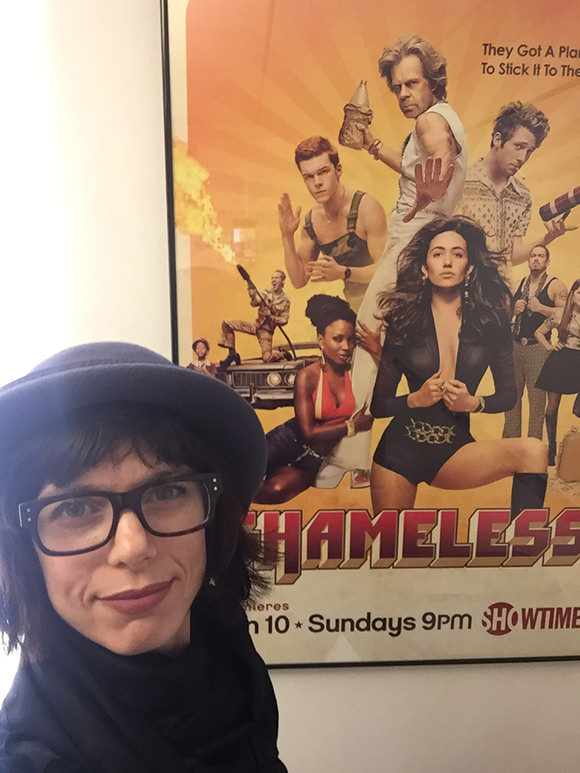Sheila Callaghan is an award-winning playwright, and her plays have been produced in New York, L.A., across the country, and abroad. These include such titles as Dead City, Lascivious Something, Everything You Touch, and That Pretty Pretty; or The Rape Play, all of which were reviewed in The New York Times. Sheila is a member of the Obie winning playwright’s organization 13P, and a founder of the feminist activist group The Kilroys. She has received the Princess Grace Award for emerging artists, a Cherry Lane Mentorship Fellowship, the Susan Smith Blackburn Award, and the prestigious Whiting Award.
Sheila is also a writer/producer of the Showtime comedy Shameless starring William H. Macy and Emmy Rossum. Previously she was a writer for Showtime’s The United States of Tara starring Toni Collette, John Corbett, and Brie Larson. In 2016 she was nominated for a Golden Globe for her work on the Hulu comedy series Casual.
In our 5000-word interview, Sheila responds with great enthusiasm to questions about Albee, the American theatre, writing for episodic television vs. the stage, and advice for aspiring writers.
If you would like to read this interview, which is only available to EAS members, join the Edward Albee Society and we will email you the complete interview with additional photos. Please go to our membership page for information on how to join.

Sheila Callaghan outside the Shameless writers’ office.
Here are some of the questions we asked:
How has Edward Albee influenced you and other younger generation playwrights?
What are your favorite Albee plays, and what was your experience like meeting Albee and receiving feedback from him on one of your plays in workshop?
How were your mentorship experiences at the Cherry Lane Theatre and working with Angelina Fiordellis?
What is your assessment of the contemporary American theater? Who are your favorite playwrights, directors, theater companies, or regional theaters?
What is it like writing episodic television versus plays? And, which medium would you prefer, if economics weren’t a part of the conversation?
What advice might you offer to aspiring writers for the stage or TV?
Do you think that opportunities for women to write, direct, or otherwise work in these artistic professions are improving, or if not, what do you think it will take to bring about diversity in all aspects of production?
Back to News